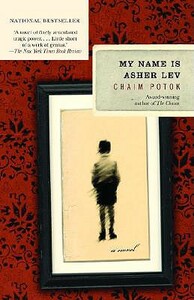Take a photo of a barcode or cover
emotional
reflective
sad
medium-paced
Plot or Character Driven:
A mix
Strong character development:
Yes
Loveable characters:
Yes
Diverse cast of characters:
Complicated
Flaws of characters a main focus:
Yes
emotional
reflective
sad
medium-paced
What a beautiful, tragic heartbreaking and thought provoking book. So much to unravel, I will be thinking about this book a long time. The ending killed me
emotional
inspiring
reflective
sad
tense
medium-paced
Plot or Character Driven:
A mix
Strong character development:
Yes
Loveable characters:
No
Diverse cast of characters:
No
Flaws of characters a main focus:
Yes
This was one of my favorite books, that I read in High School. The book does a great job of detailing the struggle of trying to be obedient to your faith, while also following your passion.
A well-told bildungsroman which builds to a terrifyingly intense climax, a slow-moving disaster sequence I had to read out loud just to get through. I've cried a few times, at the end of especially good books, but Asher Lev is the first book that's ever made me tremble. What happens when the unrelenting forces of religion meet the unrelenting forces of art, and neither side has any weapon aside from shame? Sheer terror, that's what happens.
(Before that, we get a lovely story about someone finding his place in the world, and the warm fuzzy feelings of that experience are part of how the end manages to be so... *shivers*.)
(Before that, we get a lovely story about someone finding his place in the world, and the warm fuzzy feelings of that experience are part of how the end manages to be so... *shivers*.)
dark
emotional
tense
slow-paced
Plot or Character Driven:
Character
Strong character development:
Yes
Loveable characters:
Yes
Diverse cast of characters:
Yes
Flaws of characters a main focus:
Yes
reflective
sad
medium-paced
Plot or Character Driven:
Character
Strong character development:
Yes
Loveable characters:
No
Diverse cast of characters:
Yes
Flaws of characters a main focus:
No
This is one of those books that I think was well done in terms of the questions it asks and the tensions it explores, but I did not love my reading experience. And despite thinking it was well done, as a modern reader, I also read the relationship between young Asher Lev and his parents as more emotionally abusive than just strained.
I was wowed by Potok’s writing. Everything in the book feels true to life, and he builds tension masterfully. The story felt so real, that I wished I could look up Lev’s paintings! That is a credit to his writing.
But, I found Asher’s relationship with both of his parents problematic. He says in the beginning, his mother was 19 when she had him, like a gentle older sister. Throughout the book, Asher’s life and decisions are strongly affected by the instability of either his mother’s emotional breakdowns, fears or neglect. (A quick reexamination of how old he was at each section supports this.)
Also, his father is this disciplinary, distant, looming figure over everything Lev does. Asher’s parents’ work and purpose are to be revered, respected, but Asher’s purpose, his gift, is questioned and diminished. Of course, the period of time this took place was a world in which there was hostility to Jewishness. So is Potok commenting that a purpose to create art is perhaps less important in such a world? Or would Asher’s parents have remained steadfast on their views of his art in any setting due to the confines of their religion?
These heavy questions are what I appreciated, but I am also so glad to distance myself from the tension of the Lev family!!
If the writing wasn’t as good, this tension Asher felt between his parents and community and his art, might have driven me away. Like your father is acting like you’re an animal because you’re an artist?! Please!! But this was well done. Even if I’m not sure I enjoyed it.
I was wowed by Potok’s writing. Everything in the book feels true to life, and he builds tension masterfully. The story felt so real, that I wished I could look up Lev’s paintings! That is a credit to his writing.
But, I found Asher’s relationship with both of his parents problematic. He says in the beginning, his mother was 19 when she had him, like a gentle older sister. Throughout the book, Asher’s life and decisions are strongly affected by the instability of either his mother’s emotional breakdowns, fears or neglect. (A quick reexamination of how old he was at each section supports this.)
Also, his father is this disciplinary, distant, looming figure over everything Lev does. Asher’s parents’ work and purpose are to be revered, respected, but Asher’s purpose, his gift, is questioned and diminished. Of course, the period of time this took place was a world in which there was hostility to Jewishness. So is Potok commenting that a purpose to create art is perhaps less important in such a world? Or would Asher’s parents have remained steadfast on their views of his art in any setting due to the confines of their religion?
These heavy questions are what I appreciated, but I am also so glad to distance myself from the tension of the Lev family!!
If the writing wasn’t as good, this tension Asher felt between his parents and community and his art, might have driven me away. Like your father is acting like you’re an animal because you’re an artist?! Please!! But this was well done. Even if I’m not sure I enjoyed it.


